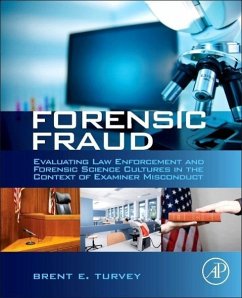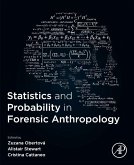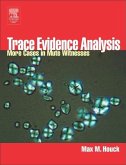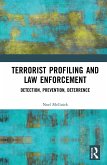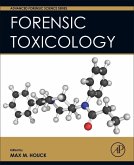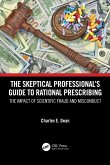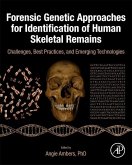Forensic Fraud is the culmination of 12 years of research by author Brent E. Turvey. A practicing forensic scientist since 1996, Turvey has rendered this first of its kind study into the widespread problem of forensic fraud in the United States. It defines the nature and scope of the problem, the cultural attitudes and beliefs of those involved, and establishes clear systemic contributors. Backed up by scrupulous research and hard data, community reforms are proposed and discussed in light of the recently published National Academy of Sciences report on forensic science.
An adaptation of Dr. Turvey's doctoral dissertation, this volume relentlessly cites chapter and verse in support of its conclusions that law enforcement cultural and scientific values are incompatible, and that the problem of forensic fraud is systemic in nature. It begins with an overview of forensic fraud as a sub-type of occupational fraud, it explores the extent of fraud in both law enforcement and scientific employment settings, it establishes and then contrasts the core values of law enforcement and scientific cultures and then it provides a comprehensive review of the scientific literature regarding forensic fraud. The final chapters present data from Dr. Turvey's original research into more than 100 fraudulent examiners between 2000 and 2010, consideration of significant findings, and a review of proposed reforms to the forensic science community based on what was learned. It closes with a chapter on the numerous crime lab scandals, and closures that occurred between 2010 and 2012 - an update on the deteriorating state of the forensic science community in the United States subsequent to data collection efforts in the present research.
Forensic Fraud is intended for use as a professional reference manual by those working in the criminal system who encounter the phenomenon and want to understand its context and origins. It is intended to help forensic scientist and their supervisors to recognize, manage and expel it; to provide policy makers with the necessary understaffing for acknowledging and mitigating it; and to provide agents of the courts with the knowledge, and confidence, to adjudicate it. It is also useful for those at the university level seeking a strong secondary text for courses on forensic science, law and evidence, or miscarriages of justice.
An adaptation of Dr. Turvey's doctoral dissertation, this volume relentlessly cites chapter and verse in support of its conclusions that law enforcement cultural and scientific values are incompatible, and that the problem of forensic fraud is systemic in nature. It begins with an overview of forensic fraud as a sub-type of occupational fraud, it explores the extent of fraud in both law enforcement and scientific employment settings, it establishes and then contrasts the core values of law enforcement and scientific cultures and then it provides a comprehensive review of the scientific literature regarding forensic fraud. The final chapters present data from Dr. Turvey's original research into more than 100 fraudulent examiners between 2000 and 2010, consideration of significant findings, and a review of proposed reforms to the forensic science community based on what was learned. It closes with a chapter on the numerous crime lab scandals, and closures that occurred between 2010 and 2012 - an update on the deteriorating state of the forensic science community in the United States subsequent to data collection efforts in the present research.
Forensic Fraud is intended for use as a professional reference manual by those working in the criminal system who encounter the phenomenon and want to understand its context and origins. It is intended to help forensic scientist and their supervisors to recognize, manage and expel it; to provide policy makers with the necessary understaffing for acknowledging and mitigating it; and to provide agents of the courts with the knowledge, and confidence, to adjudicate it. It is also useful for those at the university level seeking a strong secondary text for courses on forensic science, law and evidence, or miscarriages of justice.
"The enabling conditions and motivations behind forensic fraud are presented, with the argument that systematic incompatibilities between law enforcement culture and scientific culture are largely to blame, along with institutional negligence, rather than unavoidable 'bad apple' outliers." --Reference & Research Book News, October 2013
"Forensic science involves the systematic analysis of materials, information and data from different sources with a view to determining facts or an evidence-based conclusion.
Fictional portrayal of forensic science by Sherlock Holmes and popular television dramas such as Crime Scene Investigation (CSI) has nurtured public interest. However, there is growing evidence of miscarriage of justice based on misleading forensic evidence. Corruption and fraud in forensic activity can have distortive effects on the truth and devastating impacts such as destroying the lives of innocent defendants, the careers of the forensic examiners involved and the costs of retesting evidence. Evidence endorsed by "expert opinion carries an implicit assumption that it is a credible reflection of findings. This book sheds light on FRAUD, a recognised but poorly investigated aspect of forensic science.
Each chapter starts with an interesting quote from literature, forensic scientists and even Shakespeare. The chapters are well illustrated with real cases demonstrating the impact and consequences of fraud. Chapters conclude with summary points.
The layout and colour differentiation of the book allows for easy reading.
The introductory chapter gives a background to forensic fraud across practice settings with a predominantly American historical context. Definitions of terms, like scientific misconduct, forensic examiners, forensic fraud, perjury and "ghost authorship ensure readers are grounded in the principles of the book. Fraud is a dark topic in the forensic community with complex interplay of motivations and consequences. The author states, "anyone can commit a fraud, therefore likely perpetrators are difficult to predict.
In the second chapter, Occupational Fraud is explored using the triangle of "opportunity, pressure and rationalisation recognising that organisational cultures may be behind fraud. Readers are reminded fraud is distinct from error and negligence by virtue of intent. The wide variability across forensic science disciplines and practice with regards to methodologies, techniques, reliability, and the types and numbers of potential sources of error are acknowledged. In some areas, there are no "gold standard forensic methods and there may be competing cultures between scientists and law enforcement agencies.
The chapter on Fraud and Scientific Culture, opens with the quote "The scientific endeavour is based on vigilance, not trust which summarises aptly core Popperian theories. Readers are introduced to differences between falsification, fabrication, plagiarism and research misconduct. Prevalence of these issues are concluded as much higher than often reported and just the "tip of the iceberg.
The differences and similarities between the values and cultures of forensic scientists and law enforcement agencies are explored with the "bad apple hypothesis challenged. Readers are also introduced to the inherent loyalty challenges experienced by scientists embedded in law enforcement agencies struggling to conform to institutional cultures. This includes committing, tolerating, concealing or defending acts of overt misconduct - often for years. While there is a dearth of data on the actual frequency of forensic fraud, a series of case studies and reports shed light on the ease in which this can permeate forensic culture.
In chapter 8, data from 2000 to 2010 are also presented to buttress the point and qualitative sources from courts, agencies, print and electronic media considered other than solely published peer literature. While the data tables and charts could be better presented, they only slightly detract from the core information. The subsequent chapter presents more detailed multivariate analysis of the preceding one and may be found over inclusive to the less data analytic reader. The sample size is small and there are numerous limitations to the study cited which are instructive.
In concluding, the author suggests some useful reforms to the recruitment process, education, organisational culture, and understanding of role conflict in forensic science. These suggestions would also benefit new services. The book ends with a rich collection of case studies, which encourage readers to think analytically about contexts of fraud. The book is well indexed and references are current and usefully include web-based material.
While this book has a predominantly American slant, the lessons are rich and transferable to western and less industrialised or less forensically developed countries. It can be argued that the book actually sets a governance framework for developing forensic organisations globally. Apart from the forensic community, historians, scientific researchers, expert witnesses, organisational behaviour specialists and psychologists and occupational health practitioners may also find this an important reference text on their shelves." --Grace Y. Edozien, MRCGP, MFFLM Forensic Physician, St Mary's Sexual Assault Referral Centre
"Forensic science involves the systematic analysis of materials, information and data from different sources with a view to determining facts or an evidence-based conclusion.
Fictional portrayal of forensic science by Sherlock Holmes and popular television dramas such as Crime Scene Investigation (CSI) has nurtured public interest. However, there is growing evidence of miscarriage of justice based on misleading forensic evidence. Corruption and fraud in forensic activity can have distortive effects on the truth and devastating impacts such as destroying the lives of innocent defendants, the careers of the forensic examiners involved and the costs of retesting evidence. Evidence endorsed by "expert opinion carries an implicit assumption that it is a credible reflection of findings. This book sheds light on FRAUD, a recognised but poorly investigated aspect of forensic science.
Each chapter starts with an interesting quote from literature, forensic scientists and even Shakespeare. The chapters are well illustrated with real cases demonstrating the impact and consequences of fraud. Chapters conclude with summary points.
The layout and colour differentiation of the book allows for easy reading.
The introductory chapter gives a background to forensic fraud across practice settings with a predominantly American historical context. Definitions of terms, like scientific misconduct, forensic examiners, forensic fraud, perjury and "ghost authorship ensure readers are grounded in the principles of the book. Fraud is a dark topic in the forensic community with complex interplay of motivations and consequences. The author states, "anyone can commit a fraud, therefore likely perpetrators are difficult to predict.
In the second chapter, Occupational Fraud is explored using the triangle of "opportunity, pressure and rationalisation recognising that organisational cultures may be behind fraud. Readers are reminded fraud is distinct from error and negligence by virtue of intent. The wide variability across forensic science disciplines and practice with regards to methodologies, techniques, reliability, and the types and numbers of potential sources of error are acknowledged. In some areas, there are no "gold standard forensic methods and there may be competing cultures between scientists and law enforcement agencies.
The chapter on Fraud and Scientific Culture, opens with the quote "The scientific endeavour is based on vigilance, not trust which summarises aptly core Popperian theories. Readers are introduced to differences between falsification, fabrication, plagiarism and research misconduct. Prevalence of these issues are concluded as much higher than often reported and just the "tip of the iceberg.
The differences and similarities between the values and cultures of forensic scientists and law enforcement agencies are explored with the "bad apple hypothesis challenged. Readers are also introduced to the inherent loyalty challenges experienced by scientists embedded in law enforcement agencies struggling to conform to institutional cultures. This includes committing, tolerating, concealing or defending acts of overt misconduct - often for years. While there is a dearth of data on the actual frequency of forensic fraud, a series of case studies and reports shed light on the ease in which this can permeate forensic culture.
In chapter 8, data from 2000 to 2010 are also presented to buttress the point and qualitative sources from courts, agencies, print and electronic media considered other than solely published peer literature. While the data tables and charts could be better presented, they only slightly detract from the core information. The subsequent chapter presents more detailed multivariate analysis of the preceding one and may be found over inclusive to the less data analytic reader. The sample size is small and there are numerous limitations to the study cited which are instructive.
In concluding, the author suggests some useful reforms to the recruitment process, education, organisational culture, and understanding of role conflict in forensic science. These suggestions would also benefit new services. The book ends with a rich collection of case studies, which encourage readers to think analytically about contexts of fraud. The book is well indexed and references are current and usefully include web-based material.
While this book has a predominantly American slant, the lessons are rich and transferable to western and less industrialised or less forensically developed countries. It can be argued that the book actually sets a governance framework for developing forensic organisations globally. Apart from the forensic community, historians, scientific researchers, expert witnesses, organisational behaviour specialists and psychologists and occupational health practitioners may also find this an important reference text on their shelves." --Grace Y. Edozien, MRCGP, MFFLM Forensic Physician, St Mary's Sexual Assault Referral Centre

